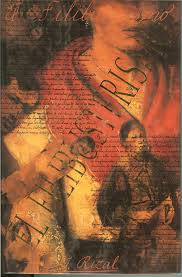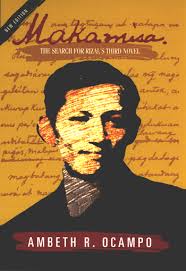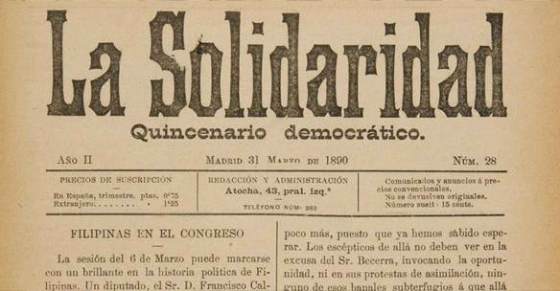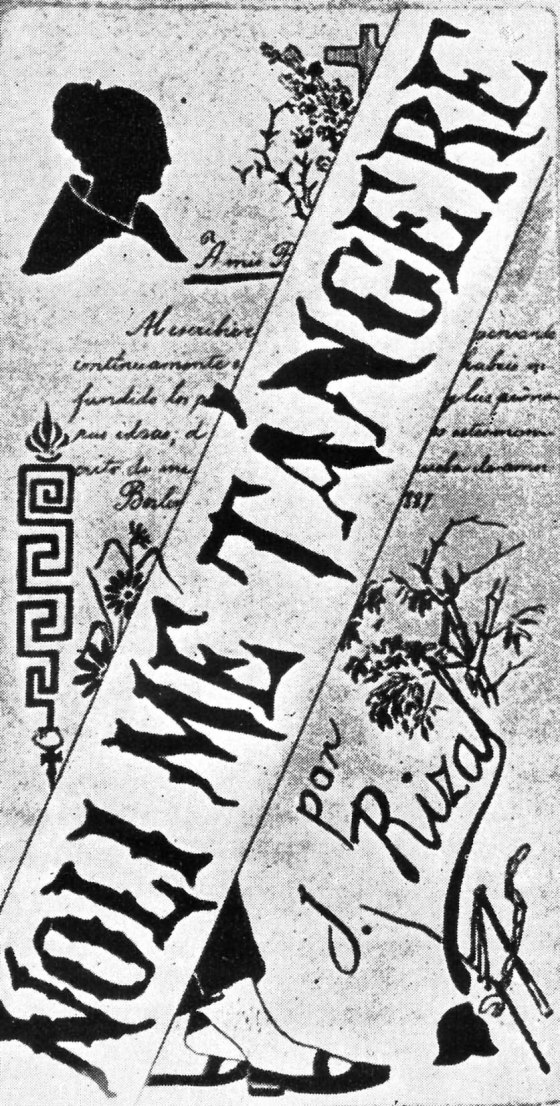



El filibusterismo or The Reign of Greed is the sequel to Noli Me Tángere.
The novel’s dark theme departs dramatically from the previous novel’s hopeful and romantic atmosphere, signifying the character Ibarra’s resort to solving his country’s issues through violent means, after his previous attempt at reforming the country’s system have made no effect and seemed impossible with the attitudes of the Spaniards towards the Filipinos. The novel along with its predecessor were banned in some parts of the Philippines as a result of their portrayals of the Spanish government’s abuse and corruption. These novels along with Rizal’s involvement in organizations that aim to address and reform the Spanish system and its issues led to Rizal’s exile to Dapitan and eventual execution. Both the novel and its predecessor, along with Rizal’s last poem, are now considered Rizal’s literary masterpieces.
Both of Rizal’s novels had a profound effect on Philippine society in terms of views about national identity, the Catholic faith and its influence on Filipino’s choice, and the government’s issues of corruption, abuse, and discrimination, and on a larger scale, the issues related to the effect of colonization on people’s lives and the cause for independence. These novels later on indirectly became the inspiration to start the Philippine Revolution.
Throughout the Philippines, the reading of both the novel and its predecessor is now mandatory for high school students throughout the archipelago, although it’s now read using English, Filipino, and the Philippines’ regional languages.

Makamisa (English: After mass) is an unfinished novel written by Filipino patriot and writer José Rizal. The original manuscript was found by historian Ambeth Ocampo in 1987 while he was going through a 245-page collection of papers. This draft is written in pure, vernacular Lagunense Tagalog and has no written direct signature or date of inscription.
The novel has only one chapter. It runs for only ten pages and is hand-written in the old orthographic ancillary glyph. Although written in a different language, its style, characterization and setting mirror those of Rizal’s two previous works, Noli me tangere and El filibusterismo which he wrote in Spanish. The chapter ends with a short unfinished sentence:
“ Sapagkát nabalitang nasampál si aleng Anday ay wala mandin siláng ”
which in English is equivalent to:
“ Although it was reported that aunt Anday was slapped, they still do not [have] ”
which therefore satisfies the theory of it being unfinished. The novel explores the mysterious ill-temperament of the town curate Padre Agaton. Rizal later restarted work on Makamisa, using Spanish.However, the novel remained unfinished. The draft in Spanish was later translated to Filipino (under the name Etikang Tagalog: Ang Ikatlong Nobela ni Rizal) by Nilo S. Ocampo,of the University of the Philippines Diliman College of Arts and Letters.

La Solidaridad (The Solidarity) was an organization created in Spain on December 13, 1888. Composed of Filipino liberals exiled in 1872 and students attending Europe’s universities, the organization aimed to increase Spanish awareness of the needs of its colony, the Philippines, and to propagate a closer relationship between the colony and Spain.
Dr. José Rizal was one of the members and he was known as “Laong Laan” at “Dimasalang”

Noli Me Tángere (Touch me Not) is a novel written by José Rizal, the national hero of the Philippines, during the colonization of the country by Spain to expose the inequities of the Spanish Catholic priests and the ruling government. The title, in Latin meaning Touch me not, refers to John 20:17 in the Bible (King James Version) as Mary Magdalene tried to touch the newly risen Jesus, He said “Touch me not; for I am not yet ascended to my Father.
Diary of a Certified Public Accountant.
facts about Jose Rizal
Designer, and other useful things.
BuddyPress, bbPress, BackPress, WordPress
"Re-examine all you have been told. Dismiss what insults your soul." ― Walt Whitman
I'm Kate and Finger, Fork and Knife is where I record the recipes that excite, nourish and inspire me. I focus on wholesome, high-nutrition, home-cooked food - recipes that satisfy and delight. Welcome!
Stuff and things.
Literary Works of Rizal
The Art and Craft of Blogging
The latest news on WordPress.com and the WordPress community.